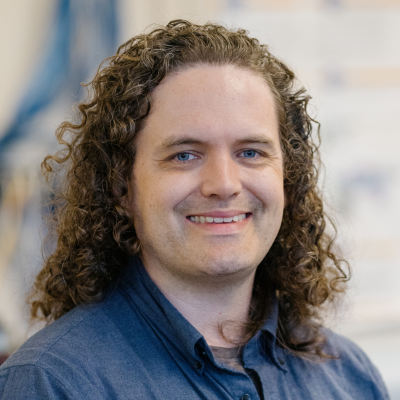I am an Associate Professor with tenure (effective September 16, 2022) in Electrical & Computer Engineering at UW Seattle, and I served as my Department’s (first) Associate Chair for DEI (DEI = Diversity, Equity, Inclusion) in the 2021–2022 academic year. I was also a founding co-director of the AMP Center.
I am broadly interested in discovering and formalizing principles of sensorimotor control; I focus on applications in robotics, neuroengineering, and human-cyber-physical systems.
I’ve taught the following courses:
- EE 201 (Computer Hardware Skills) in Winter 2024
- EE 397 (Sex & Gender in Engineering) in Fall 2024
- EE 406 (Teaching Engineering) in Spring 2024
- EE 447 (Control Systems Analysis) in Fall 2019, Fall 2020, Fall 2021, Fall 2023
- AA/EE/ME 546 (Optimization and Learning for Control) in Spring 2018, Winter 2020, Winter 2022
- AA/EE/ME 546 (Hybrid Systems: Theory, Computation, and Applications) in Spring 2017
- AA/EE/ME 547 (Linear Systems Theory) in Fall 2015, Fall 2016, Winter 2021
- AA/EE/ME 548 (Linear Multivariable Control) in Winter 2016, Winter 2017, Winter 2019, Spring 2020, Spring 2021, Spring 2022
- AA/EE/ME 594 (Robust Control) in Spring 2019
I keep my availability up-to-date on my calendar — I’m usually available in any open slot 9a–5p pt M–F.
I welcome suggestions for updates to my website.
I try to keep my CV up-to-date, but I suggest checking papers and talks for recent results.
After being promoted / tenured, I made the following materials publicly available:
- the faculty application I submitted to UW EE (now ECE);
- the CV and Self-Advocacy statement I submitted with my application for tenure;
- my sabbatical plan for the 2022–2023 academic year.
I’m on arXiv, Scholar, ORCID, GitHub, LinkedIn, and Twitter.
I was born in a (formerly) little-known town on the (stunning) Olympic Peninsula.
I enjoy climbing, paddleboarding, and hiking.
I identify as a white hetero cis male, father, husband, and first-generation college graduate.
I live with chronic illness.
My pronouns are he/him/his.
brief bio
Sam Burden earned his BS with Honors in Electrical Engineering from the University of Washington in Seattle in 2008. He earned his PhD in Electrical Engineering and Computer Sciences from the University of California in Berkeley in 2014, where he subsequently spent one year as a Postdoctoral Scholar. In 2015, he returned to UW EE (now ECE) as an Assistant Professor, where he received awards for research (Young Investigator Program, Army Research Office, 2016; CAREER, National Science Foundation, M3X program, 2021) and service (Junior Faculty Award, UW College of Engineering, 2021). Sam served as his Department’s (first) Associate Chair for Diversity, Equity, and Inclusion in 2021–2022 and was promoted to Associate Professor with tenure in 2022. He is broadly interested in discovering and formalizing principles of sensorimotor control. Specifically, he focuses on applications in robotics, neuroengineering, and (human-)cyber-physical systems. Sam lives with chronic illness, and is happy to meet with anyone who identifies as disabled or chronically ill.
awards
2021 — UW College of Engineering Junior Faculty Award
2021 — NSF CAREER – Mind, Machine, Motor Nexus (M3X)
2016 — ARO Young Investigator Program – Mechanical Sciences
2015 — Washington Research Foundation Early Faculty Fellow
2011 — UC Berkeley Outstanding Graduate Student Instructor
2009 — NSF Graduate Research Fellowship
2007 — COMAP MCM Outstanding Winner, MAA Prize
research program
I am always eager to recruit motivated and independent folks. If you’re interested in joining my group, I encourage you to get in contact with me. Ideally we’ll meet in person, e.g. at a conference, but we can also connect over email.
Before reaching out, look at my recent papers, talks, and/or videos below, and let me know (a) what ideas or problems you find particularly interesting and (b) how you would want to contribute.
On human-machine interaction games
I created a talk in Fall of 2024 and presented it at a few places. I’m particularly proud of this talk, as it shows how my group’s work on human-machine interaction has grown over the past 5 or so years from modeling human sensorimotor transformations to using game theory to predict and shape human-machine interaction outcomes.
You can watch a recording of my presentation in the Stanford Robotics Seminar using this link.
human/machine interaction is a sensorimotor game
I presented at the 2022 Dynamic Walking meeting at “the other UW” in Madison, WI. You can watch the video using this link.
On infinitesimal contraction analysis for tracking through contact-rich dynamics
I talked in a workshop on Impact-Aware Robotics organized by Yan Gu, Alessandro Saccon, and Abderrahmane Kheddar at IROS 2021.
Toward Telelocomotion: contact-rich robot dynamics and human sensorimotor control
I hosted my Department’s Colloquium series in Fall quarter of 2020 – this was my talk, which kicked off the series on Oct 6, 2020 (my birthday!).
Toward Telelocomotion: human sensorimotor control of contact-rich robot dynamics
I talked in the CMU Robotics Institute Seminar on Jan 17, 2020.
Why (or, more specifically, when) do feedforward inputs yield stable behaviors? (slides) (chalk talk)
At the 2018 Dynamic Walking meeting in Pensacola, FL, I gave a hybrid slideshow / “chalk talk” on our contraction theory results, which generated a lot of interesting discussions.
Toward Telelocomotion
I gave this talk on Sep 30 2016 at Microsoft Research in Redmond; I particularly enjoyed the lively discussion that took place throughout this talk!
Predictive dynamical models for sensorimotor control
I gave this talk on Nov 17 2015, shortly after starting as an Asst Prof in UW EE; it provides an overview of the work I did toward the end of my PhD and as a postdoc. The video is here.
Reduction and Identification for Models of Locomotion: an Emerging Systems Theory for Neuromechanics
I gave this talk on Feb 18 2014, during my interview at UW EE; it provides an overview of my thesis work. The video is here.
